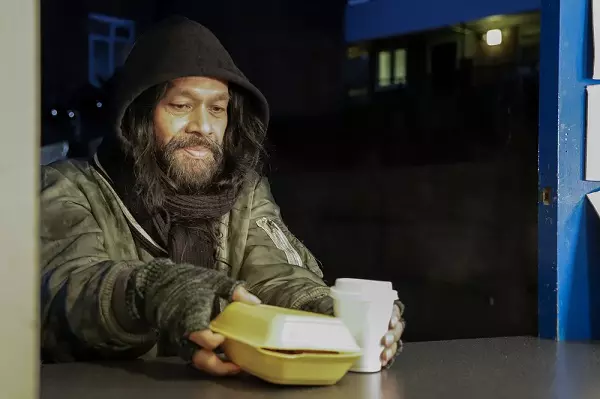Government urged to immediately house new rough sleepers during lockdown
published on 8 Jan 2021
The Salvation Army is calling for people newly sleeping rough since the start of the pandemic to be urgently found accommodation for the lockdown in England.
The church and charity, which is one of the country’s largest providers of homelessness services is calling for the Government to urgently reinvigorate the “Everyone In” initiative launched during the first national lockdown last March. New people on the streets include people whose livelihoods disappeared overnight or when their living conditions, such as sofa surfing became impossible due to social distancing.
Malcolm Page, The Salvation Army’s Assistant Director of Homelessness Services said: “The Government is now targeting funds where demand is high, but not necessarily across the board. Now that we are back in lockdown in England, we need another national ‘Everyone In’ initiative to be a high priority. Local authorities need to immediately be given the necessary funding and resources to pay for self-contained accommodation to keep people safe.
“In the face of a growing public health emergency and when we know rough sleepers are at high risk of coronavirus due to underlying health conditions, we are repeating our call for the Government to immediately increase short-term funding. Not only this but to make up for a decade of austerity, by pledging sustainable long-term investment to eradicate rough sleeping.”

The Salvation Army is battling to protect people with nowhere to turn around the country:
- In St Helen’s, The Salvation Army has expanded its work by converting office space in one of its Lifehouses to provide additional emergency accommodation and support to seven rough sleepers in a covid-safe way.
- In London, The Salvation Army has opened bed spaces to rough sleepers coming out of hospital, helping to reduce pressures on NHS capacity.
- The corps at Crewe in Cheshire are regularly serving 30 people with hot meals and drinks as although temporarily housed they can’t afford to buy food.
This front-line care, made possible through generous donations, is in addition to working with local authorities to support people housed through ‘Everyone In’ into longer term accommodation.
The Salvation Army published its own blueprint for tackling homelessness and rough sleeping last summer, Future-Proof the Roof. The report highlights a new approach to investment in homelessness and rough sleeping, which will allow the Government to maintain the recent progress made through the ‘Everyone In’ initiative and provide added protection against the wider economic downturn caused by Covid-19.
Key recommendations from Future-Proof the Roof include:
- Introducing a CHAIN type recording systems in city regions outside of London with high levels of rough sleeping, so that the Government can accurately calculate the level of resource and investment required to end rough sleeping during this Parliament in line with its manifesto commitment.
- Ensuring that Government introduces a full multi-year investment plan for homelessness across the course of this Parliament. At a minimum, this plan must ensure that investment does not fall below the £700 million invested in 2020/21.
- Ensuring that the social security system prevents rather than causes homelessness and rough sleeping, by maintaining the recent increase in the Local Housing Allowance (LHA), so that people can afford to rent at least three in every ten of the most affordable properties in any given area. Following the Spending Review in November, this means the Government must reverse its freeze on the value of LHA rates from 2021/22 so that its value can increase yearly in line with inflation.
- In addition, the Government must also make the temporary £20/week increase to the standard allowance of Universal Credit and Working Tax Credit permanent from April. The Government must keep this lifeline to prevent 700,000 more people, including 300,000 children, from falling into poverty overnight, further increasing their risk of homelessness.